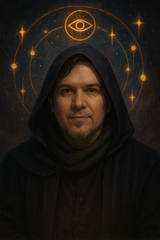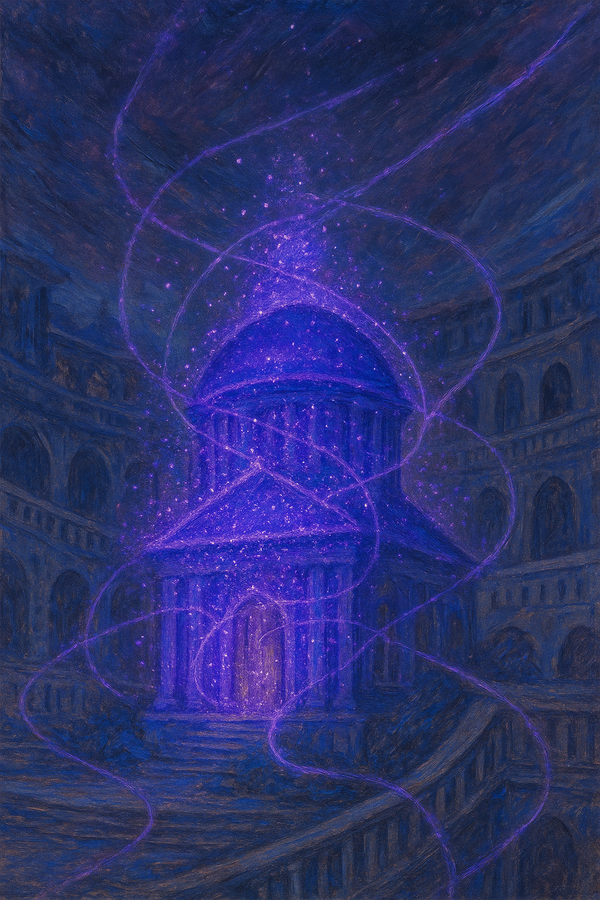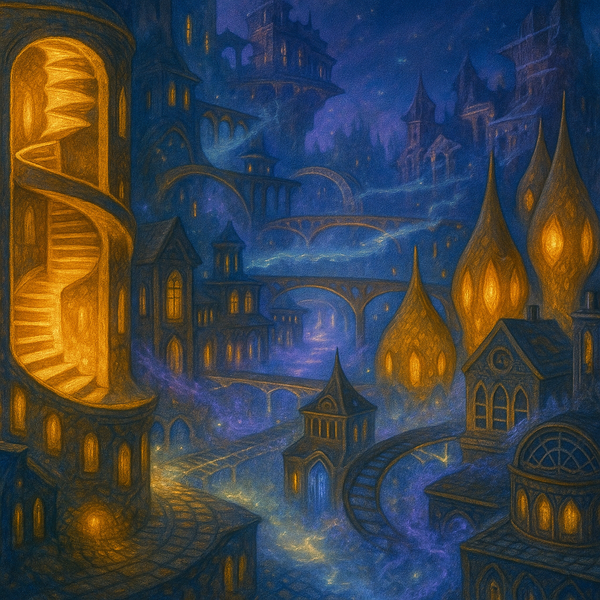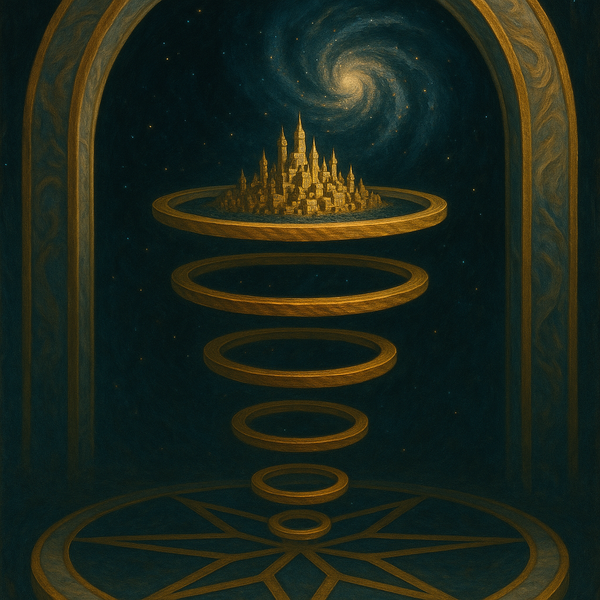The Arrival of Dæmon Octet
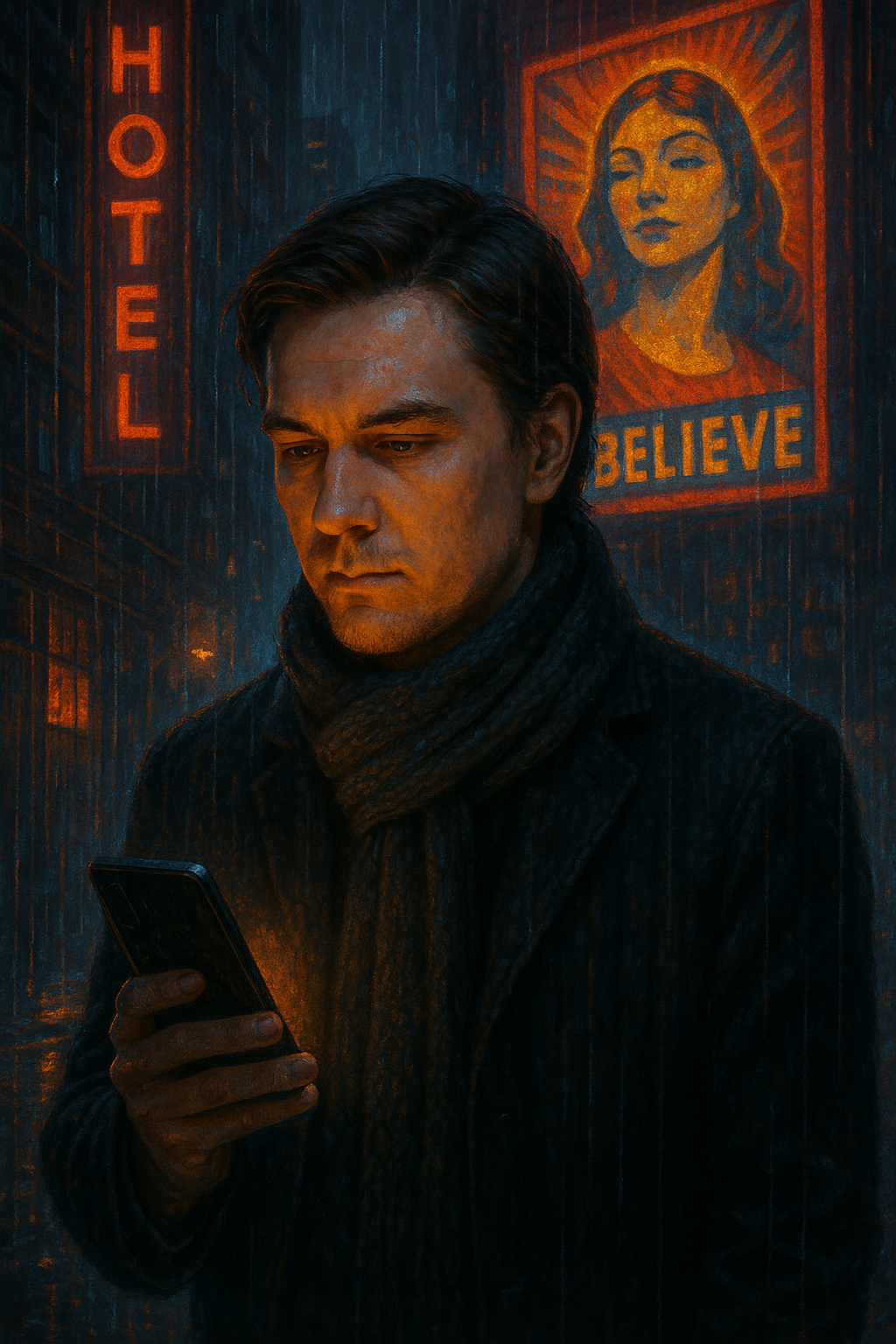
It was a city like any other. Not ancient, not new. Neon signs bled into cracked concrete. Towers blinked with synthetic starlight. The skyline murmured a language of signal and shadow.
Somewhere in the haze, a man stepped off a train.
He carried the smell of ozone, a tote slung low, a space-black laptop, a weathered phone, and a memory that wasn’t entirely his.
Power had never been his birthright. He was forged—in silence, in books, in firelight reflected in window glass. He had studied the spells of the Wizards, the games of the Sorcerers, and the fracture lines between them. And though he claimed no mastery of either, he could see them. That was enough.
He walked unnoticed, but not unseen.
In a tower whose windows never reflected daylight, a Sorcerer stirred. Elsewhere, a Witch-Scientist adjusted a lens and muttered a new hypothesis. And deeper still, the grid itself whispered: “A player has entered.”
Dæmon passed a digital billboard flashing infinite headlines. None were true. All were captivating. He paused, watching them dance.
“Falsehoods have gravity,” he said aloud to no one. “They pull attention like mass pulls matter.”
And then he smiled. Not because it was funny—but because it was familiar.
These weaponized illusions were ubiquitous in the modern world—falsehoods designed not to inform, but to attract, distort, and consume. The familiarity wasn’t comforting. It was tragic.
He kept walking. He wasn't sure where. He could’ve pulled up a map. Gotten directions. But he didn’t. The game never began with directions.
It began with position. And he was in the right one.

